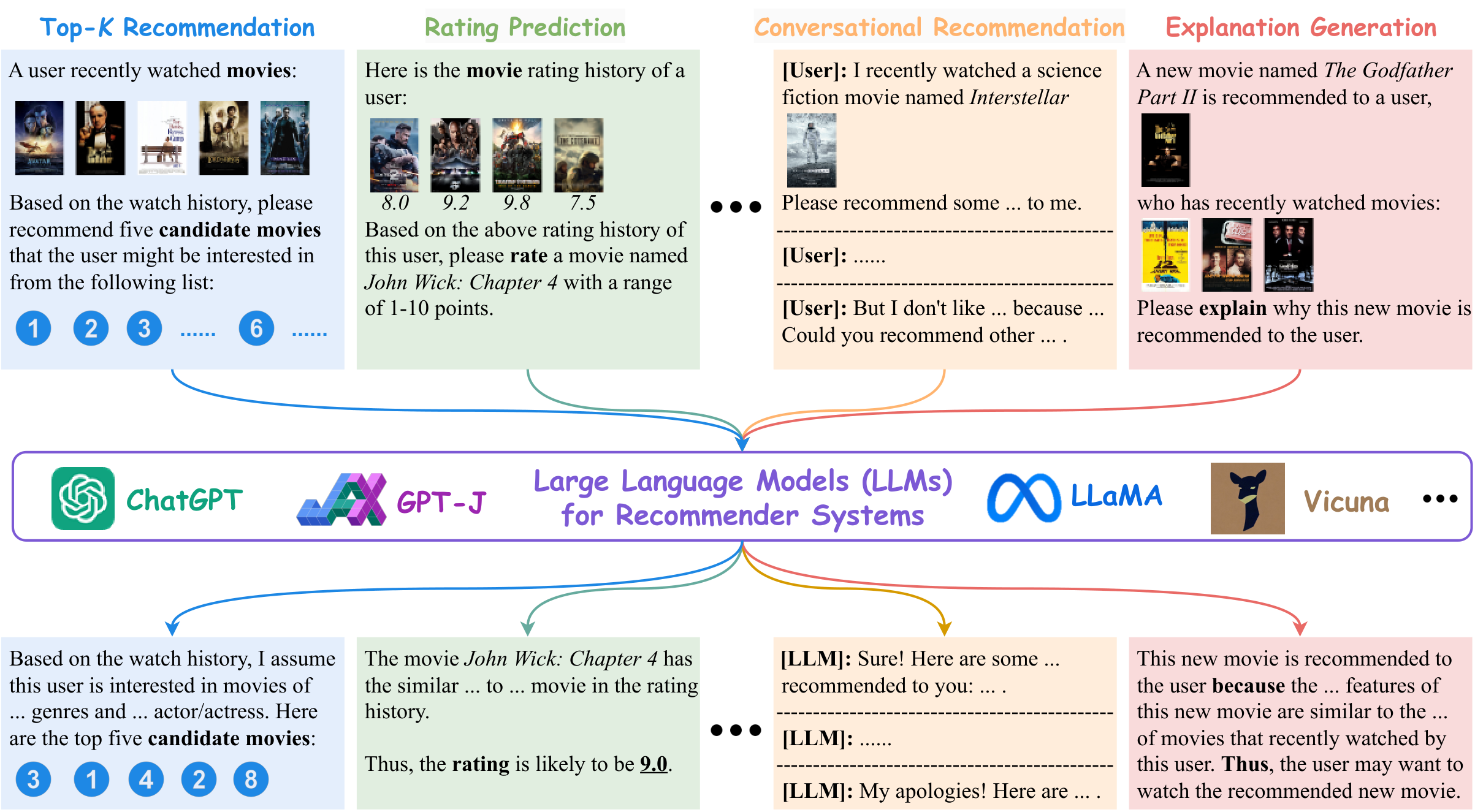INTRO
With the prosperity of e-commerce and web applications, Recommender Systems (RecSys) have become an important component in our daily life, providing personalized suggestions that cater to user preferences. While Deep Neural Networks (DNNs) have made significant advancements in enhancing recommender systems by modeling user-item interactions and incorporating their textual side information, these DNN-based methods still have some limitations, such as difficulties in effectively understanding users’ interests and capturing textual side information, inabilities in generalizing to various seen/unseen recommendation scenarios and reasoning on their predictions, etc.
Meanwhile, the emergence of Large Language Models (LLMs), such as ChatGPT and GPT4, has revolutionized the fields of Natural Language Processing (NLP) and Artificial Intelligence (AI), due to their remarkable abilities in fundamental responsibilities of language understanding and generation, as well as impressive generalization and reasoning capabilities. As a result, recent studies have attempted to harness the power of LLMs to enhance recommender systems.
Given the rapid evolution of this research direction in recommender systems, there is a pressing need for a systematic overview that summarizes existing LLM-empowered recommender systems, so as to provide researchers and practitioners in relevant fields with an in-depth understanding. Therefore, in this survey, we conduct a comprehensive review of LLM-empowered recommender systems from various aspects including Pre-training, Fine-tuning, and Prompting. More specifically, we first introduce representative methods to harness the power of LLMs (as a feature encoder) for learning representations of users and items. Then, we review recent advanced techniques of LLMs for enhancing recommender systems from three paradigms, namely pre-training, fine-tuning, and prompting. Finally, we comprehensively discuss the promising future directions in this emerging field.
The topics of this tutorial include (but are not limited to) the following:
- Introduction to LLM-based Recommender Systems
- Preliminaries of Recommender Systems and LLMs
- Pre-training LLM-based Recommender Systems
- Fine-tuning LLM-based Recommender Systems
- Prompting LLM-based Recommender Systems
- Dimension Interactions & Future Directions





